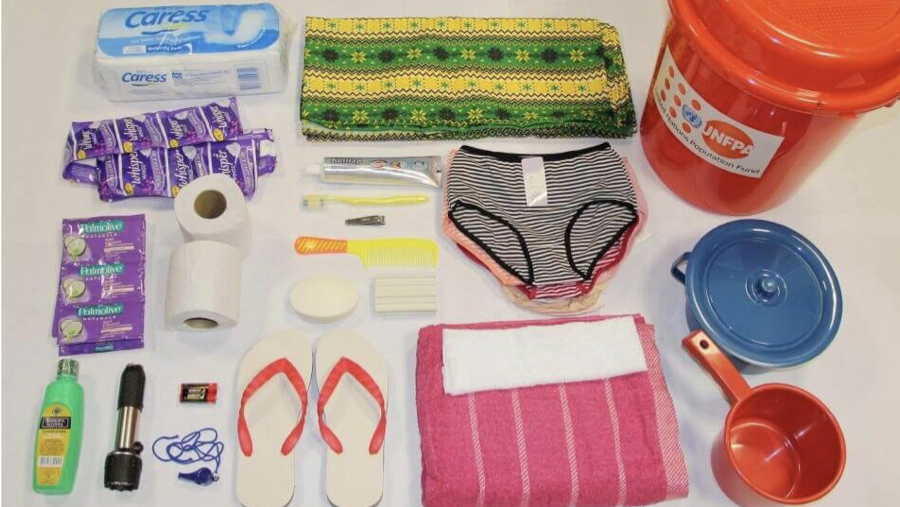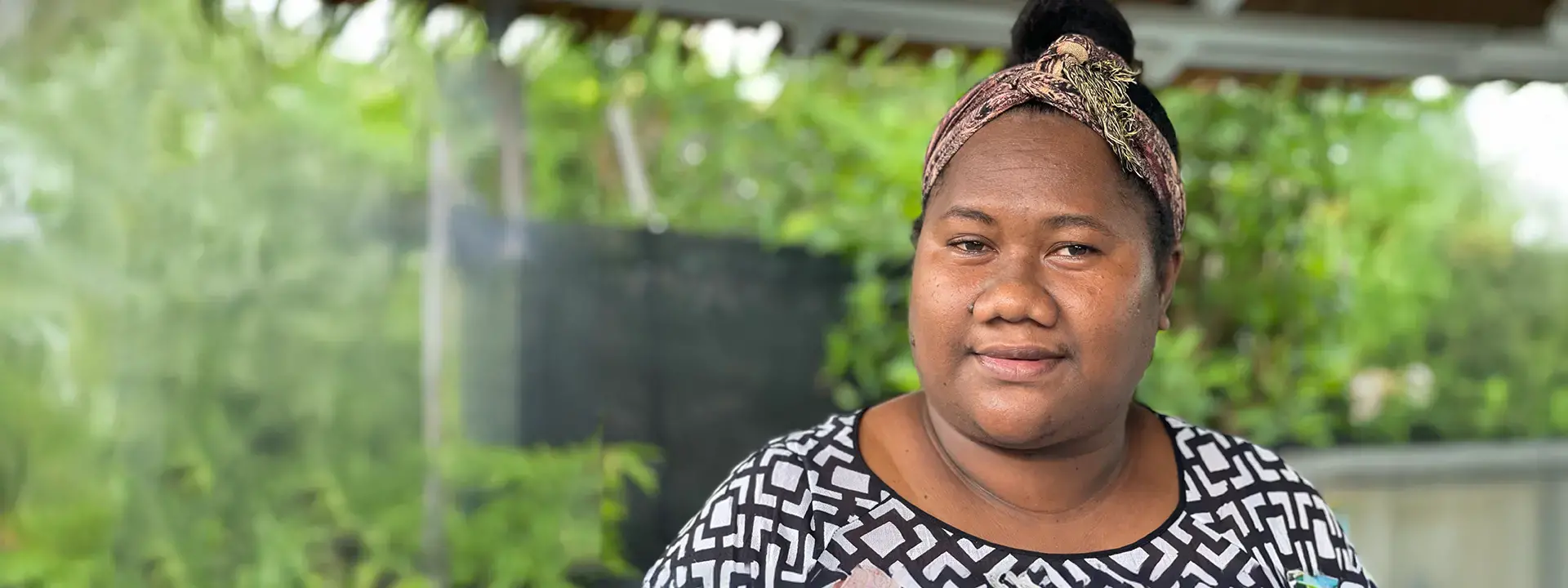Profile: Lorah Etega, Solomon Islands
“Survivors know this is a safe place, that they are not alone”
Lorah Etega supports survivors of gender-based violence seeking safety at Seif Ples, a DFAT supported shelter in Solomon Islands. She plays a critical role as a frontline responder referring survivors to other service providers and providing initial emotional support. The centre offers a range of services including a medical service hotline, referral assistance and accommodation for survivors of domestic violence and rape. It is open 24 hours a day, seven days a week.
“The shelter is a safe place,” Lorah says. “Our core work is the protection and security for the survivors.” She and her team help survivors understand and access the services available to them, like long-term accommodation, medical care, legal support and counselling.
“If there is domestic violence survivor with bruises or anything to deal with for rape survivors, we need to understand how to respond in times of crisis.”
Seif Ples received dignity kits from UNFPA through a DFAT-supported initiative, and women at the shelter are given one when they arrive. These include basic items to support women and girls to protect themselves and maintain their hygiene, and dignity.
“Dignity kits are part of psychological first aid."
“Dignity kits are part of psychological first aid,” she says. “When the survivor comes into Seif Ples, 99 percent of them come without extra clothes or without a bag. They come empty-handed into the shelter as they ran away from their homes and from their partners.”
Women usually go to the police station and get referred to Seif Ples or they come by themselves. “The kits are part of the healing process. The women smile when we give it to them when they arrive. They know this is a safe place. It gives them that sense that they are not alone. ‘There are people that are concerned for us, they care about us.’

Lorah recently attended a workshop on the Minimum Initial Service Package for sexual and reproductive health in crisis situations. The training helped frontline responders better prepare for how to support women and girls during humanitarian crises, including survivors of gender-based violence. “If a rape survivor comes, we need to provide them with sexual and reproductive health services, including treatment of sexually transmitted infections and emergency contraception to prevent an unintended pregnancy. The training expanded our knowledge, and helped build connections between clinicians and non-clinicians.”
"We are all advocates in our response for survivors of gender-based violence.”
In the past, only nurses could support the survivors of rape. “The training helps expand our lenses,” she says. “Now not only nurses support the survivors, we are all advocates in our response for survivors of gender-based violence.”
Lorah notices that financial problems in the home can exacerbate existing gender-based violence, a problem intensified by lockdowns and unemployment after a lack of tourism for nearly three years. Some men choose to use violence against their spouse in the face of financial tensions. “If there is no food in the home and the mother starts to ask ‘Where did you use the money?’ Then there is an explosion. Domestic violence is a big problem here in Solomon Islands.”
Women often want to separate from their husbands, so Lorah helps connect them with legal advisors. She says many women hesitate when it comes to divorce because of concern for who will provide for their babies or who will pay the school fees.
Whether the survivor chooses to press charges in court typically depends on the survivor’s fear of losing her husband. “The husband is usually the breadwinner of the family. He has a job and he has the money. It is hard for the wife to make that choice to divorce their husbands.”
While Lorah hopes Seif Ples will one day be able to connect survivors with more economic empowerment opportunities, the shelter helps women establish a solid footing at this vulnerable period in their lives. By offering services tailored to gender-based violence survivors’ individual needs and choices, Lorah and her colleagues at Seif Ples are contributing to a safer environment for women, which is essential to their empowerment.
Learn more
This work is supported in part with funds from the Government of Australia, Department of Foreign Affairs and Trade.


